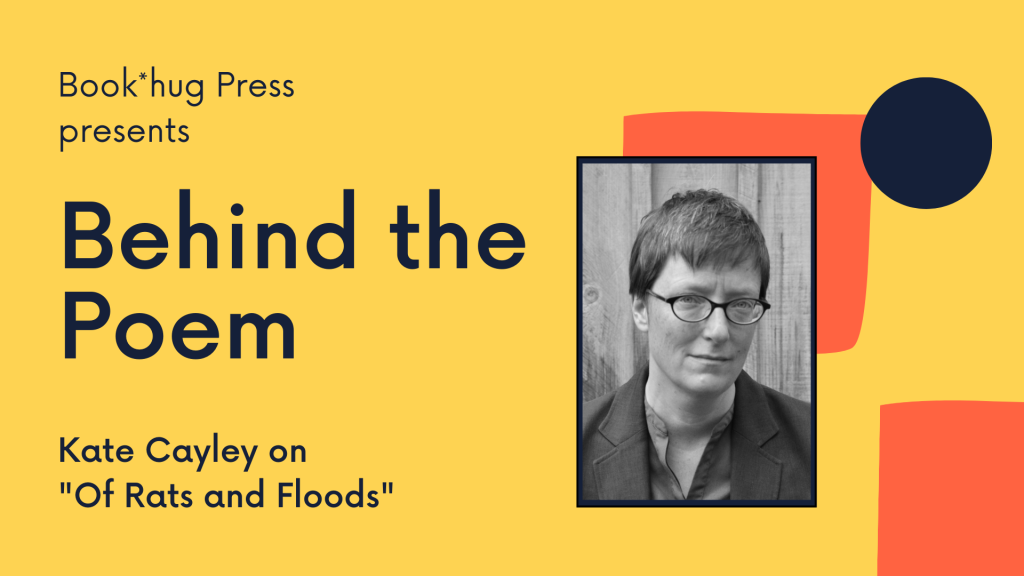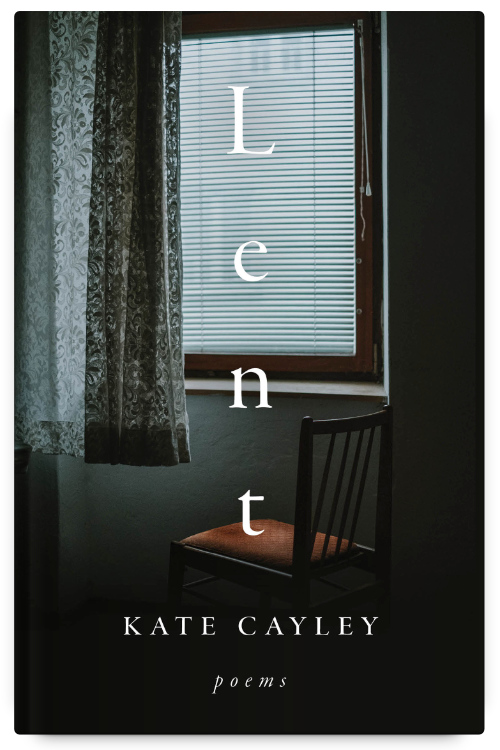Behind the Poem with Kate Cayley

Today, we’ve invited Kate Cayley to the blog to share thoughts on a poem from Lent. The poem, entitled “Of Rats and Floods,” is aptly inspired by an actual rat infestation and flood in her home. But Cayley explains how the initial distress around the infestation changed into empathy for the creatures who have been here for generations before us. Now handing it off to Cayley:
The poem “Of Rats and Floods” came into being fairly obviously: we had a rat infestation in my house around the same time as our basement kept flooding. My house is old and not extensively renovated, especially in the basement, partly because of money and partly because of putting off unpleasant things. The houses in my west-end Toronto neighbourhood were, I’ve been told, originally built for workers in the factories nearby, and are pretty much nineteenth century versions of pre-fab housing. They were built without foundations, on sandy and often wet ground from Toronto’s network of buried creeks. A partial foundation was added later, but the front of the basement is still earth. And there’s a lot of dank masonry and an old cold storage room we use for bikes and my files. So all in all, picture the final scene of The Blair Witch Project. I don’t go down there when I’m alone in the house if I can help it.
By rat infestation I mean rats frolicking happily around the dining room table while we watched TV after dinner. I mean finding rat shit in my children’s rooms. Rats climbing into a full jar of bacon grease and licking it spotlessly clean. Rats walking by our useless cat, totally in command of the place. After sprinkling essential oil, plugging holes with steel wool, and other folksy stuff, I called an exterminator. He gave me a tour of my basement, explained why it was ideal for rats because it kept flooding in the heavy rains, which meant they would always have a source of water. And then he showed me all their trails, including holes worn in the concrete itself, and told me that these trails were generations old, predating my family by decades, that some of them had been there as long as the house had stood. That was amazing. And it got me thinking about time and human memory (rats, he said, tell each other stories and pass stories between generations) and the folly of thinking our own consciousness is primary. To be clear, we still paid him to put down poison and traps. Still, it’s only a brief working compromise. They aren’t coming up out of the basement anymore, but I’m sure they are passing through, as they have for more than a hundred years. The rats, in the long run, have the upper hand, the way the water does, flowing underneath the city, biding its time.

Kate Cayley is the author of two previous poetry collections, a young adult novel, and two short story collections, including How You Were Born, winner of the Trillium Book Award and shortlisted for the Governor General’s Literary Award for Fiction. A tenth anniversary edition of How You Were Born is forthcoming from Book*hug Press in 2024. She has also written several plays, both traditional and experimental, which have been performed in Canada, the US, and the UK. She is a frequent writing collaborator with the immersive company Zuppa Theatre. Cayley has won the O. Henry Short Story Prize, the PRISM International Short Fiction Prize, the Geoffrey Bilson Award for Historical Fiction, and a Chalmers Fellowship. She has been a finalist for the K. M. Hunter Award, the Carter V. Cooper Short Story Prize, and the Toronto Arts Foundation Emerging Artist Award, and longlisted for the Frank O’Connor International Short Story Prize, and the CBC Literary Prizes in both poetry and fiction. In 2021, she won the Mitchell Prize for Faith and Poetry for the title poem in Lent. She has been writer in residence at McMaster University and the Toronto Public Library, and mentored emerging writers through the University of Guelph Creative Writing MFA, the University of Toronto School of Continuing Studies, Diaspora Dialogues, and Sisters Writes. Cayley lives in Toronto with her wife and their three children.

